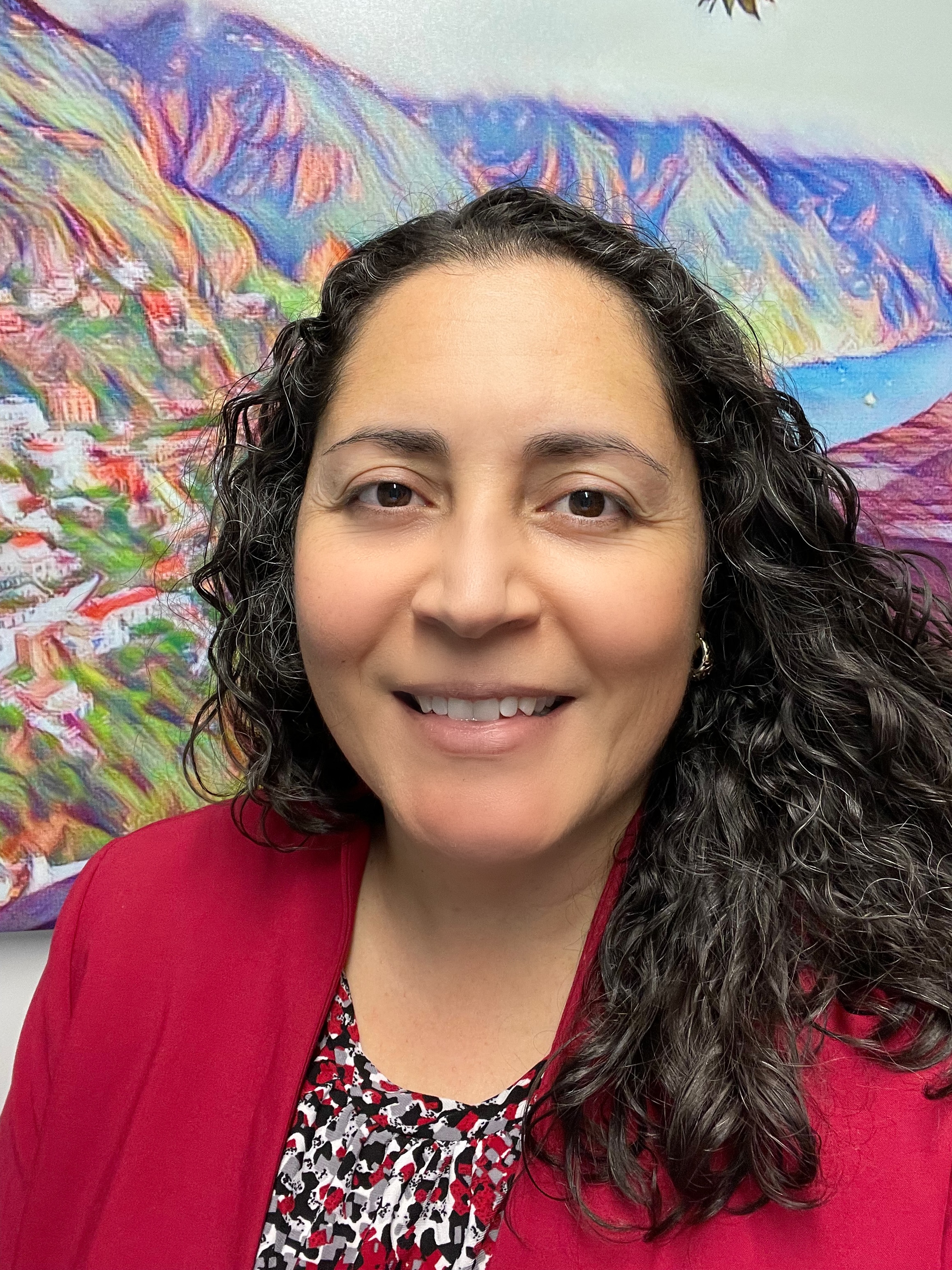|
THE NEVADA PSYCHOLOGICAL ASSOCIATION PRESENTS
Principles of building an inclusive practice:
Intentional strategies to create welcoming therapeutic spaces
Presented by Irma Corral, Ph.D.
1 Cultural Competency Homestudy CE Credits
 Approved for Nevada Psychologists, LCSWs and MFTs/CPCs. Approved for Nevada Psychologists, LCSWs and MFTs/CPCs.
NPA is approved by the American Psychological Association to sponsor continuing education for psychologists. NPA maintains responsibility for this program and its content.
About the Workshop:
This pre-recorded workshop is for psychologists looking for actionable strategies to improve inclusion in their clinical practice. Building on a foundation that recognizes the ethical imperative for fostering inclusive therapeutic spaces, the workshop addresses strategies to: 1) enhance psychological safety; 2) improve cultural humility and structural competence in care; and 3) remove systemic barriers to care. A socioecological approach is taken to explore available options for intervention across the domains of people, spaces, and contexts. By the end of this workshop, participants will have a roadmap for transforming your practice, enabling you to provide more effective and accessible care to the diverse communities you serve.
Learning Objectives:
At the end of this workshop, attendees will be able to:
1) Explain the foundational principles of psychological safety, cultural humility, and structural competence in creating welcoming therapeutic spaces.
2) Analyze how current physical spaces, staff training, and practice systems may inadvertently create barriers for diverse clients
3) Develop integrated strategies for cultivating an inclusive practice that prioritizes the unique needs and experiences of diverse client populations.
Audience:
This presentation is intended for psychologists, other licensed mental health providers, and graduate students of psychology.
About the Speaker:
 Irma Corral, PhD, MPH is an associate professor in the Kirk Kerkorian School of Medicine at UNLV Department of Psychiatry and Behavioral Health. Dr. Corral is a licensed clinical psychologist, specialized in behavioral medicine. She earned a bachelor of arts degree in psychology from UNLV, and then completed a master of science degree in psychology and a master of public health degree with a specialization in health promotion from San Diego State University (SDSU). She then earned a Ph.D. from the University of California San Diego’s joint doctoral program in Clinical Psychology with San Diego State University. Dr. Corral completed her clinical internship in behavioral medicine at the Veterans Affairs Palo Alto Healthcare System, and then completed her postdoctoral clinical training in behavioral medicine at the Brody School of Medicine at East Carolina University. Irma Corral, PhD, MPH is an associate professor in the Kirk Kerkorian School of Medicine at UNLV Department of Psychiatry and Behavioral Health. Dr. Corral is a licensed clinical psychologist, specialized in behavioral medicine. She earned a bachelor of arts degree in psychology from UNLV, and then completed a master of science degree in psychology and a master of public health degree with a specialization in health promotion from San Diego State University (SDSU). She then earned a Ph.D. from the University of California San Diego’s joint doctoral program in Clinical Psychology with San Diego State University. Dr. Corral completed her clinical internship in behavioral medicine at the Veterans Affairs Palo Alto Healthcare System, and then completed her postdoctoral clinical training in behavioral medicine at the Brody School of Medicine at East Carolina University.
Dr. Corral's areas of clinical specialization include pre-surgical psychological evaluation (e.g., for transplant, bariatric and other surgeries) and behavioral chronic illness management (e.g., for adherence, coping, adjustment). She has extensive experience working with medical populations with bariatric, renal, cardiac, oncology, pain and autoimmune conditions.
Dr. Corral is part of the senior leadership at the Kirk Kerkorian School of Medicine and is active in teaching, recruitment and retention of medical students and residents. Her research focuses on sociocultural and structural factors in health behavior and chronic illness, as well as racial/ethnic disparities in physical and mental health. She has a long history of leadership experience in diversity, equity, and inclusion work in academic medicine.
Registration Fees
NPA members $0.00 (no charge for active NPA members and students)
Non-members $25.00
General Information:
Access to Webinar/Handout Materials:
This is a 1-hour pre-recorded presentation for homestudy CE credit. Electronic copy of handout materials will be sent out by email to attendee after registration is completed along with link(s) to view pre-recorded live, virtual webinar
Refunds & Grievance Policy:
Participants may direct questions or grievances to NPA at (888) 654-0050.
Approval and CE Credit:
The Nevada Psychological Association (NPA) is approved by the American Psychological Association to offer continuing education for psychologists. NPA maintains responsibility for the program and its content.
If you want to receive homestudy CE credit for this pre-recorded presentation, you will need to complete and pass an online Post-Test Questions form. According to APA’s Standards and Criteria for Approval of Sponsors, attendee must score at least 70% accuracy to qualify for CE credit, ensuring that attendee did actually attend and complete the program. Partial credit will not be issued to those that do not score at least 70% on posttest. Attendees are allowed three attempts to complete and pass the online posttest to receive CE credit.
Completion of the evaluation form is appreciated, forms are tabulated and reported to our CE Committee for discussion, analysis of participants’ satisfaction with content, instructor performance, etc.
CE certificate will be issued via email within 72 hours of receipt of post test and evaluation form, provided a passing score is obtained.
References:
- American Psychological Association (2024). Guidelines for Psychological Practice With Older Adults. Retrieved from https://www.apa.org/practice/guidelines/older-adults.pdf
- American Psychological Association, APA Task Force on Guidelines for Assessment and Intervention with Persons with Disabilities. (2022). Guidelines for Assessment and Intervention with Persons with Disabilities. Retrieved from https://www.apa.org/about/policy/guidelines-assessment-intervention-disabilities.pdf
- American Psychological Association, APA Task Force on Race and Ethnicity Guidelines in Psychology. (2019). Race and Ethnicity Guidelines in Psychology: Promoting Responsiveness and Equity. Retrieved from http://www.apa.org/about/policy/race-and-ethnicity-in-psychology.pdf
- American Psychological Association, Boys and Men Guidelines Group. (2018). APA guidelines for psychological practice with boys and men. Retrieved from http://www.apa.org/about/policy/psychological-practice-boys-men-guidelines.pdf
- American Psychological Association, Girls and Women Guidelines Group. (2018). APA guidelines for psychological practice with girls and women. Retrieved from http://www.apa.org/about/policy/psychological-practice-girls-women.pdf
- American Psychological Association. (2019). Guidelines for Psychological Practice for People with Low-Income and Economic Marginalization. Retrieved from www.apa.org/about/policy/guidelines-lowincome.pdf.
- American Psychological Association. 2017. Multicultural Guidelines: An Ecological Approach to Context, Identity, and Intersectionality. Retrieved from: http://www.apa.org/about/policy/multicultural-guidelines.pdf
- American Psychological Association. Guidelines for psychological practice with transgender and gender nonconforming people. Am Psychol. 2015 Dec;70(9):832-64. doi: 10.1037/a0039906. PMID: 26653312.
- Exposito-Campos, P., Perez-Fernandez, J.I., & Salaberria, K. (2023). Empirically supported affirmative psychological interventions for transgender and non-binary youth and adults: A systematic review. Clinical Psychological Review, 100, 1-20. https://doi.org/10.1016/j.cpr.2022.102229
- Flinn, R. E., Estevez, R., Terepka, A., Boot-Haury, J., Abreu, R. L., Dewey, J. M., & Skerven, K. (2025). Transaffirmative psychological practice is ethical practice: Leveraging the American Psychological Association’s Ethical Principles of Psychologists and Code of Conduct in practice and advocacy. Journal of Counseling Psychology. https://doi.org/10.1037/cou0000811
There is no potential conflict of interest and/or commercial support for this program or its presenter.
|


 Irma Corral, PhD, MPH is an associate professor in the Kirk Kerkorian School of Medicine at UNLV Department of Psychiatry and Behavioral Health. Dr. Corral is a licensed clinical psychologist, specialized in behavioral medicine. She earned a bachelor of arts degree in psychology from UNLV, and then completed a master of science degree in psychology and a master of public health degree with a specialization in health promotion from San Diego State University (SDSU). She then earned a Ph.D. from the University of California San Diego’s joint doctoral program in Clinical Psychology with San Diego State University. Dr. Corral completed her clinical internship in behavioral medicine at the Veterans Affairs Palo Alto Healthcare System, and then completed her postdoctoral clinical training in behavioral medicine at the Brody School of Medicine at East Carolina University.
Irma Corral, PhD, MPH is an associate professor in the Kirk Kerkorian School of Medicine at UNLV Department of Psychiatry and Behavioral Health. Dr. Corral is a licensed clinical psychologist, specialized in behavioral medicine. She earned a bachelor of arts degree in psychology from UNLV, and then completed a master of science degree in psychology and a master of public health degree with a specialization in health promotion from San Diego State University (SDSU). She then earned a Ph.D. from the University of California San Diego’s joint doctoral program in Clinical Psychology with San Diego State University. Dr. Corral completed her clinical internship in behavioral medicine at the Veterans Affairs Palo Alto Healthcare System, and then completed her postdoctoral clinical training in behavioral medicine at the Brody School of Medicine at East Carolina University.



